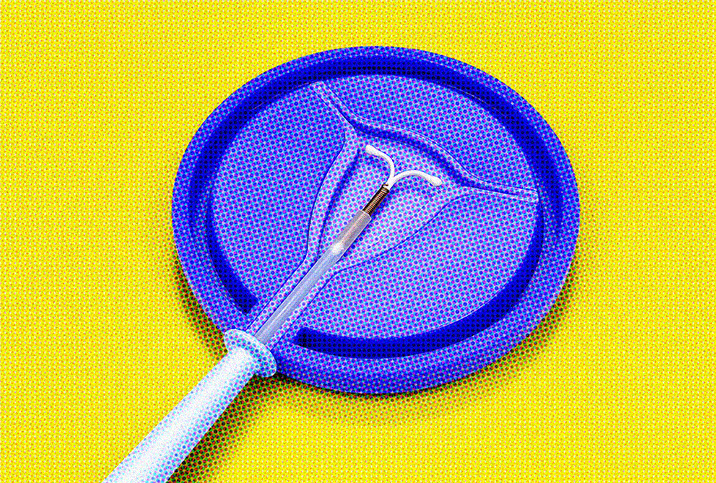What to Do When Birth Control Fails

A thorough understanding of your body and reproductive system is key to preventing unwanted pregnancy and sexually transmitted infections (STIs) and diseases. Modern birth control has come a long way and, when used as prescribed, is extremely effective. But, unexpected things happen, and having a backup plan is always a good idea.
The usual birth control
There are a variety of birth control methods for men and women. The Centers for Disease Control and Prevention (CDC) details the most common and effective methods, from intrauterine implants to hormonal patches to condoms and even sterilization.
Most birth control methods are focused on the female reproductive system, with more options for men (hopefully) coming in the future. Because of this, birth control often plays a large role in women's reproductive health.
Women have a wide variety of choices when it comes to contraceptives, and pretty much every option comes with some side effects. Some options can be permanent, while others require periodic doses. Whichever form you decide on is totally up to you. Some forms of birth control, specifically oral contraception such as "the pill," can also be used to help regulate periods and hormones, while barrier methods, such as condoms, can also prevent STDs.
It may take some research on the benefits and costs of different methods and consulting your OB-GYN to decide which birth control works best for you.
If your birth control method fails, or if you have unprotected sex and need an effective emergency alternative, you have options.
Emergency birth control
Unlike the typical methods of birth control, which are taken periodically or daily, emergency contraceptives are specifically meant for use after unprotected sex in order to prevent unwanted pregnancy. They work by preventing the implantation of a fertilized egg within the uterus.
It is important to note emergency contraceptives are most effective the sooner you use them. The window for them to work can be up to five days after unprotected sex, but the sooner you use them, the more likely they are to work.
Copper IUD
Women can have a ParaGard (copper) IUD implanted within five days after having unprotected sex. This is perhaps the most effective form of emergency contraceptive, reducing the chances of pregnancy by more than 99 percent. You can get a ParaGard inserted by your gynecologist, at your local Planned Parenthood or at a family planning clinic.
However, getting an appointment within five days may not alway be possible, and in that case, emergency contraceptive pills, such as Plan B or Ella, are your next-best option.
Emergency contraceptive pills
The morning-after pill is the most common form of emergency contraceptive. According to the CDC, there are three types of emergency contraceptive pills available in the U.S. Some are available over the counter.
While Plan B is the most commonly known name, there are various progestin pills. These morning-after pills contain a higher dose of levonorgestrel than typical birth control and work by temporarily preventing ovulation and the implantation of a fertilized egg. It can typically be purchased over the counter at your local pharmacy.You can also find it online at places like Nurx, afterpill.com and even Amazon.
Ella is another emergency contraceptive pill that can be taken up to five days after unprotected sex. Like Plan B, it works by preventing ovulation and keeps a fertilized egg from implanting within the uterus. Ella can be more effective than Plan B in preventing unwanted pregnancy, especially if you weigh more than 155 pounds, but you need a prescription to get it. Some pharmacies will prescribe Ella to you without requiring a visit to your doctor. You can also find a prescription online through Planned Parenthood.
Most side effects of emergency contraceptives are temporary, and usually go away within a month. They may include nausea, dizziness and a change in your menstrual cycle. If you experience severe or long-lasting side effects, reach out to your physician.
Understand your fertility cycle
One of the most effective ways to prevent unwanted pregnancy is understanding your own fertility cycle. Women are only fertile for a certain number of days each month. The CDC determines that with a regular menstrual cycle, you have nine or more days of fertility each month.
There are several different methods to help you keep track of your fertility cycle. You can then choose to either not have sex on days when you are fertile or use a barrier method of birth control instead.
Abortion
If all else fails, and you do end up pregnant, remember, you still have options. Whether you decide to keep the baby, give it up for adoption or have an abortion is a complex decision. Support groups and professionals are available to provide whatever support you might need.
If your decision comes down to whether or not you're comfortable with an invasive procedure, understand there are various methods of ending a pregnancy. From pills to in-clinic procedures, consider talking with your partner or health professional about what would work best for you.
Emergency contraception is not a guaranteed way to prevent unwanted pregnancy. As with all things, there are a wide variety of contributing factors that can enhance or decrease its effectiveness. The best thing you can do is be educated on your reproductive health and options.


















